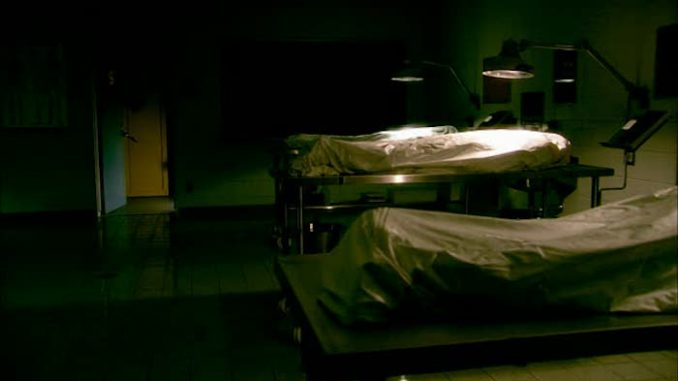
Doctors in Canada have recorded the first ever scientific proof of life after death, claiming that people’s brains continue functioning after they are pronounced clinically dead.
Researchers from the University of Western Ontario had been monitoring the brain activity and heart beatings of four people who were in intensive care, after their life support machines were turned off.

BYPASS THE CENSORS
Sign up to get unfiltered news delivered straight to your inbox.
You can unsubscribe any time. By subscribing you agree to our Terms of Use
Latest Video
According to doctors in a Canadian intense care unit, one patient continued showing persistent brain activity for ten minutes after their heart had stopped.
Dailymail.co.uk reports:
Brain inactivity preceded the heart stopping in three of the four cases.
However, in one of the cases, the patient’s brain continued to work after their heart stopped.
‘In one patient, single delta wave bursts persisted following the cessation of both the cardiac rhythm and arterial blood pressure (ABP),’ the researchers said.
There was significant differences in electrical activity in the brain between the 30-minute period before and the 5-minute period after the heart stopped.
‘It is difficult to posit a physiological basis for this EEG [brain] activity given that it occurs after a prolonged loss of circulation’, according to the paper which was published in the National Centre for Biotechnology Information.
Across the four patients recordings of their brain were very different – suggesting we all experience death in unique ways.
The experiment raises difficult questions about when someone is dead and therefore when it is medically and ethically correct to use them for organ donation.
As many as a fifth of people who survive cardiac arrests report having had an other-worldly experience while being ‘clinically’ dead.
However, scientists say it’s far too early to be talking about what this could mean for the post-death experience – especially considering it was only seen in one patient, according to Science Alert.
In 2013, a similar phenomenon was investigated on experiments on rats whose hearts had stopped.
The research, which was published in the journal Proceedings of the National Academy of Sciences revealed rats had a burst of brain activity one minute after decapitation.
The pattern of activity was similar to that seen when the animals were fully conscious – except signals were up to eight times stronger.
The researchers said that the discovery that the brain is highly active in the seconds after the heart stops suggests that the phenomenon has a physical, rather than spiritual nature.
It has been argued that the dying brain is incapable of such complex activity and so near-death experiences must have their origins in the soul.
It suggests something happens at the brink of death that pushes the conscious brain to a high level of arousal, potentially triggering the visions and sensations associated with near-death experiences (NDEs).
As many as a fifth of people who survive cardiac arrests report having had an other-worldly experience while being ‘clinically’ dead.
Typically NDEs involve travelling through a tunnel towards an intense light, being separated from the body, encountering long-departed loved ones or angels and undergoing some kind of judgment of ‘life review.
Some emerge from NDEs as transformed individuals with a completely altered outlook on life, or a new belief in religion.
But many scientists believe near-death-experiences are nothing more than hallucinations induced by the effect of the brain shutting down.
https://youtu.be/uwc1d5UEncM


